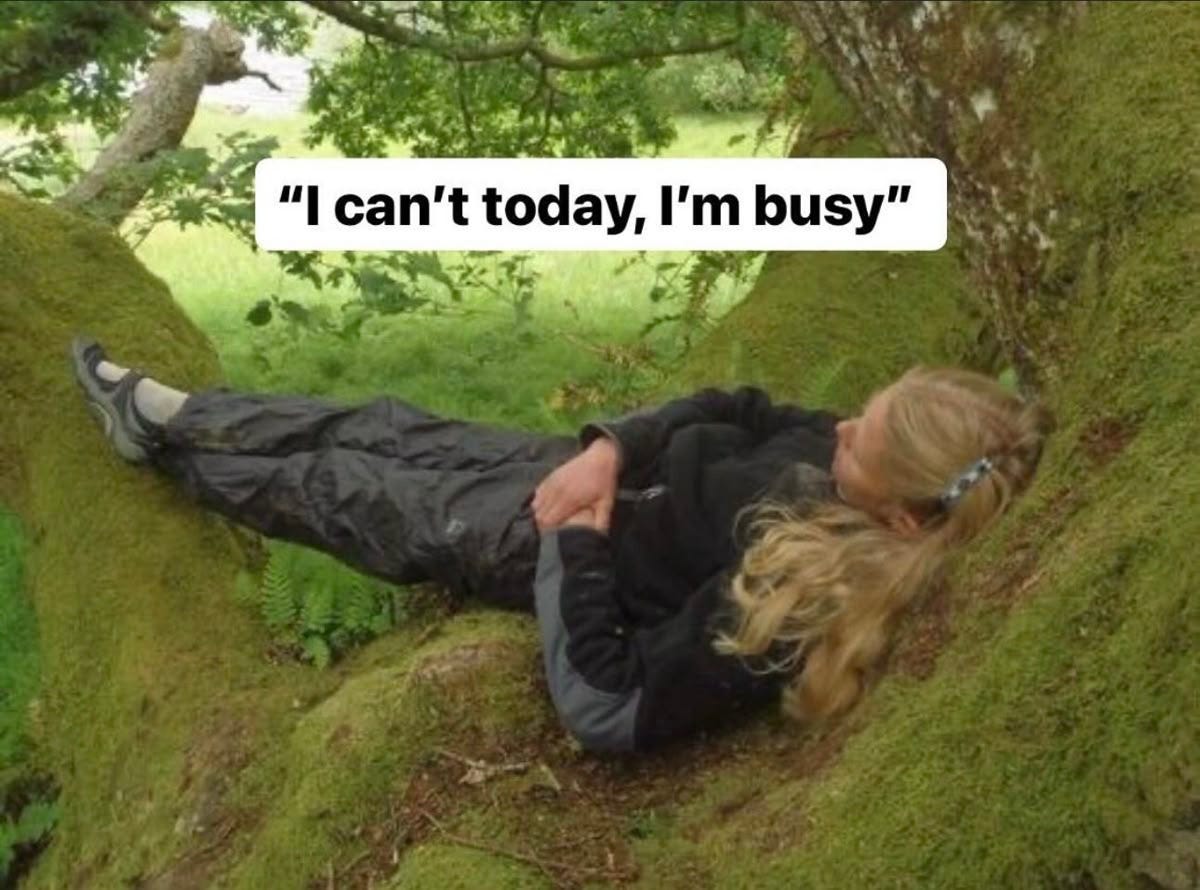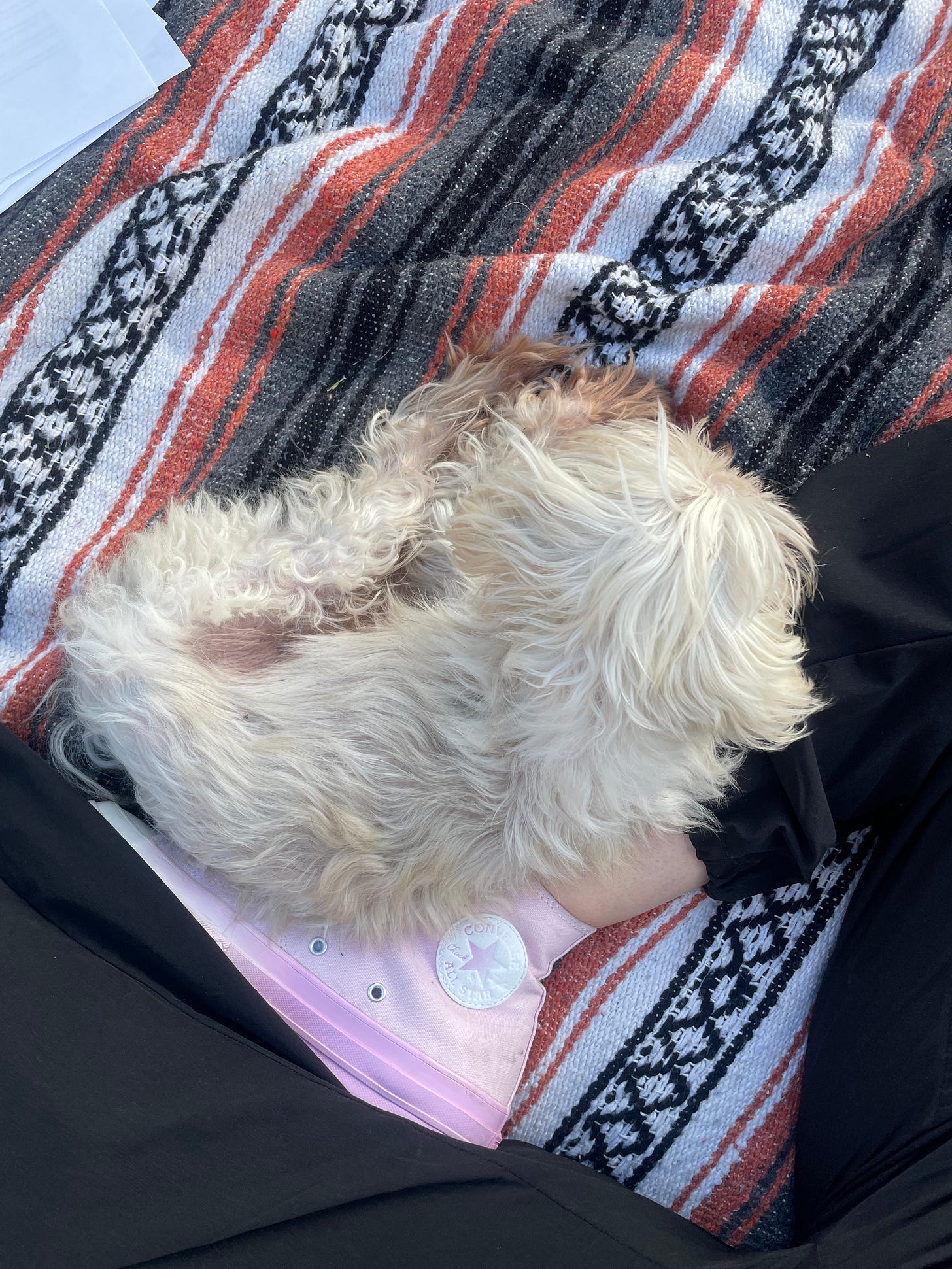When I was a little girl, I’d wake up early and wander into the kitchen to find my dad sitting by the window, staring into space, his energy thick as he sat on a loveseat with a Bible open in his lap. I always thought he was so strange for that. Now, I can see that it was probably his only moment of peace in the day.
Later, I would whine to my mother that I was bored, and she would reply while washing the dishes that I had better find something to fix that.
I waded through the kind of benign neglect that anyone born before the year 2000 knows all too well, wandering outside on a summer morning and keeping myself occupied until the sun went down.
I created imaginary worlds, built forest homes, and flipped over rocks to reveal upside-down potato bugs wiggling their little legs to get free.
But eventually, I got older, and screens happened.
Our phones make it so that we never have to feel bored, but now boredom has become a 21st century virtue that we can tack up next to patience and courage and kindness.
I often think about all the magic we miss because we’re too busy scrolling.
We miss the little dog hanging out of the car window and the cherry blossoms peeking out from their winter coats every spring. And because it feels awkward to simply slow down, stare, and observe, we retreat into our screens and lose the fleeting, silly, beautiful moments unfolding all around us.
Boredom is the liminal space where creativity, clarity, and unexpected ideas sneak in. We rail against a lack of inspiration and clarity, and yet we never give them an opportunity to surface in the nothingness of boredom.
So, for the last 7 days, I ran an experiment on myself:
What would happen if I resisted the urge to fill my mind and simply let it be for a few minutes every day?
If you’re just tuning in, I’m on week 5 of The Brilliance Experiment — 52 weeks of tiny, life-changing experiments to reignite the spark you lost when life got hard.
On week 1, I challenged myself to wear more color.
On week 2, I challenged myself to leave the house every day with intention and purpose.
On week 3, I challenged myself to read every day.
On week 4, I challenged myself to clear a path for fresh energy in my home.
The logic of optimization culture is that every pocket of free time should be used responsibly.
If we’re waiting in line, we catch up on emails. If we wake up early, we squeeze in a workout or try to “get a jump on the day.” Doing nothing—truly nothing—feels unnatural. Wasteful, even.
We have to convince ourselves that rest is productive. And even then, we try to fill it with guided meditations and stretching and legs-up-the-wall.
But we need the voids. We need moments where nothing happens so that something new can come through.
The best ideas, the deepest clarity, and the most surprising insights don’t come when we’re forcing and squeezing the minutes and hours in our days. They arrive in the quiet, unoptimized spaces where our minds can be found empty and breathing.
This week, I let myself sit in those spaces. Each morning, I woke up around 6:00am. I’d throw on a sweater and shuffle into the kitchen to make a latte with maple syrup and oat milk. Then, I’d wander into my living room, nestle myself into the sofa corner, and just sit there for 10 minutes. No screens. No nothing. Just me and the sound of the mourning doves, the distant hum of the freeway, and the soft, slow unfolding of the morning.
I watched myself resist it. I felt the itch to reach for my phone, and several times I relented.
I observed myself reaching unconsciously for my phone while waiting for a webpage to load. Catching myself, I would slide my phone back behind my laptop screen and stare out the window instead.
It is profoundly uncomfortable to just sit there. Boredom is so rare in my life that it feels wrong.
But as I surrendered to the empty pockets of time day after day, my thoughts slowed down, my heart rate slowed down, and I began to understand how misguided we are about boredom.
On Thursday, an unseasonably warm February day, I caught myself sitting at my desk editing a manuscript for an upcoming project, when I realized I could take it outside. I collected my disabled, elderly dog (who is a masterclass in presence), and we went outside to just be. I know my time left with him is limited, and knowing how to put the distractions away and sit with him is a gift.
These sit-and-stare times are an offramp from the relentless chase of modern life. Slowness creates space not just for ideas, but for something even rarer: contentment.
Boredom is a portal. It’s the space where our best ideas form, our nervous systems reset, and our subconscious makes connections we’d never find in the chaos of constant input. Without empty, unoptimized space, our minds never have a chance to surprise us.
There’s something radical about sitting in stillness in an overstimulated world. It’s defiant in a culture that constantly demands our attention be somewhere other than here. Presence is a pleasure most of us don’t even realize we’ve lost, but can be easily reclaimed in tiny in-between moments of every day life.
Want the Week 6 experiment? Upgrade your subscription to $5/month for instant access 🔐
Keep reading with a 7-day free trial
Subscribe to Ambitious Softie to keep reading this post and get 7 days of free access to the full post archives.







